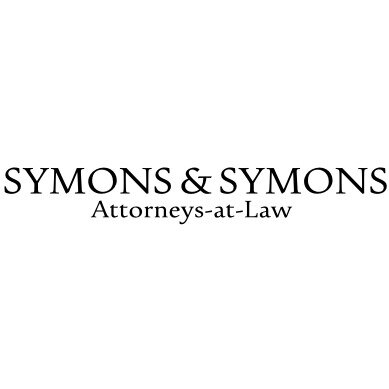Best Inheritance Law Lawyers in West Bay
Share your needs with us, get contacted by law firms.
Free. Takes 2 min.
List of the best lawyers in West Bay, Cayman Islands
1. About Inheritance Law in West Bay, Cayman Islands
Inheritance law in West Bay, Cayman Islands, governs how a deceased person’s assets are distributed. It covers wills, intestacy when there is no will, probate and administration applications, and the duties of executors or administrators. The Grand Court of the Cayman Islands oversees probate matters, while the Public Trustee may be involved in intestate estates or where no suitable executor can be appointed.
In West Bay, like the rest of Grand Cayman, real property, bank accounts, and offshore assets are part of estate administration. A valid will directs distribution, but if a person dies without a will, the estate is distributed according to statutory rules. Working with a solicitor or attorney who specializes in succession matters helps ensure compliance with local procedures and cross-border considerations for offshore assets.
Key terms you’ll encounter include testator, executor, administrator, probate, letters of administration, and intestacy. Understanding these concepts helps you navigate the sequence of steps from death to the transfer of assets. For official guidance on probate processes, consult the Cayman Islands judiciary resources and government information pages.
Useful government and judicial resources provide the framework for how estates are settled in West Bay. They clarify who may apply for probate, what forms are required, and the timelines involved. See official guidance at the Cayman Islands Government and Judicial pages for current procedures and requirements.
2. Why You May Need a Lawyer
Engaging a solicitor or attorney who specializes in inheritance matters can save time, money, and stress. Below are concrete scenarios you might encounter in West Bay that typically require legal help.
- You are named as executor in a will and need to apply for probate in West Bay. The process involves preparing and filing the required forms, locating the original will, and locating all estate assets and liabilities.
- You are a beneficiary challenging a will or an intestate share. If you suspect lack of testamentary capacity, undue influence, or improper execution, professional advice is essential.
- The estate contains Cayman real property or offshore assets. Cross-border assets require careful consolidation of local and foreign probate requirements and tax implications.
- There are disputes among siblings or other heirs about distributions. A lawyer can facilitate mediation or, if necessary, representation in court to resolve conflicts.
- There is no valid will, or the will is contested. The Public Trustee or a lawyer can guide you through intestacy rules and appointing an administrator efficiently.
- You need to update or rewrite a will to reflect new assets, guardianship needs for minors, or changes in family circumstances. A solicitor ensures proper execution and witnessing.
3. Local Laws Overview
In the Cayman Islands, inheritance matters are principally governed by a set of core statutes that dictate how wills are created, how estates are probated, and how assets pass when there is no will. The following are commonly cited laws in this area.
- Wills Law - Governs the creation, execution, and validity of wills and their interpretation. It forms the basis for how a testator can direct their estate after death.
- Probate and Administration Law - Regulates the process of proving a will in the Grand Court and issuing a grant of probate or letters of administration to collect and distribute assets. It also covers the duties of executors and administrators.
- Succession Law - Sets out the rules of intestacy when there is no valid will, including the statutory shares of surviving spouses and children and the order of distribution of assets.
Notes on dates and changes: laws in the Cayman Islands are periodically updated and consolidated. For the exact consolidated texts, current amendments, and effective dates, consult official sources such as the Government of the Cayman Islands and the judiciary. West Bay residents are encouraged to review the latest versions of these statutes on official sites to confirm any recent changes.
The Grand Court retains jurisdiction over probate matters, and the Public Trustee may administer estates where there is no suitable executor or where there is no will. These arrangements are designed to ensure estates are settled fairly and in a timely manner within Cayman Islands law. Official guidance on these processes can be found through the judiciary and government portals.
4. Frequently Asked Questions
Here are common questions about inheritance law in West Bay, Cayman Islands. The questions cover practical, definitional, cost, and procedural aspects.
What is the difference between a will and intestacy in Cayman Islands?
A will directs how assets pass after death. Intestacy applies when there is no valid will, so statutory rules determine the shares for relatives.
How do I apply for probate in West Bay?
Prepare the original will, death certificate, asset list, and liabilities. A solicitor files the probate application with the Grand Court and you await a grant.
How long does probate typically take in Cayman Islands?
Timelines vary by estate complexity. Simple estates may settle in a few months; complex cases can extend beyond six to twelve months.
Do I need a solicitor to handle probate in West Bay?
While not legally mandatory, a solicitor skilled in Cayman Islands succession matters reduces errors and speeds up the process.
How much does it cost to probate an estate?
Costs depend on the estate value and case complexity. Typical fees include court fees, solicitor’s charges, and potential expert costs.
Can a will be challenged in Cayman Islands?
Yes. Grounds include lack of testamentary capacity, undue influence, or improper execution. Legal representation is advised.
What happens if someone dies without a will?
The estate is distributed under intestacy rules. Spouses and children often receive statutory shares as determined by law.
Is a will valid if executed abroad and the deceased dies in Cayman?
Validity depends on how the will was executed and whether it complies with Cayman or foreign law requirements. A local solicitor can advise.
Do witnesses to a will need to be Cayman residents?
Witness requirements are defined by the Wills Law. Local legal counsel can ensure proper witnessing to avoid validity challenges.
Can offshore assets be probated in Cayman Islands?
Yes, but cross-border procedures may apply. A Cayman solicitor coordinates with international counsel and local probate steps.
What qualifications should a lawyer have for inheritance matters?
Seek a solicitor or attorney with Cayman Islands Bar membership and a track record in wills, probate, and succession work.
5. Additional Resources
Use official resources to verify procedures, timelines, and forms. The following sources provide government and judicial guidance relevant to inheritance matters in Cayman Islands.
- Judicial Administration - Cayman Islands - Information on probate, administration, and court processes. https://www.judicial.ky
- Government of the Cayman Islands - General information on legal and estate matters, including access to statutory texts and official notices. https://www.gov.ky
- Cayman Islands Gazette - Official publication for legal notices, including probate-related announcements. https://gazette.gov.ky
6. Next Steps
- Clarify your role and objective - Identify whether you are an executor, administrator, or beneficiary and outline the estate assets. This helps you decide the scope of legal work and documents needed. Timeline: 1-3 days.
- Compile essential documents - Gather death certificate, will (if any), asset inventories, property titles, and liabilities. Having everything ready speeds up the initial consultation. Timeline: 2-5 days.
- Find a Cayman Islands inheritance specialist - Search for solicitors or attorneys with confirmed experience in wills and probate in West Bay and the surrounding districts. Request referrals from trusted sources or the Cayman Islands Bar Association if available. Timeline: 1-2 weeks.
- Schedule a consultation - Book an appointment to discuss your case, expected timelines, and fees. Bring your documents and a list of questions. Timeline: within 1-3 weeks.
- Discuss scope, fees, and retainer - Confirm whether the firm charges fixed fees or hourly rates, and what may affect totals. Obtain a written engagement letter and fee estimate. Timeline: 1-2 weeks after the initial meeting.
- Decide on a plan and engage the lawyer - Choose the solicitor who demonstrates practical guidance, clear communication, and a realistic timeline. Timeline: 1 week after meetings.
- Proceed with probate or administration steps - Your lawyer files the necessary applications, coordinates with the court, and manages asset collection and distribution. Timeline: dependent on estate complexity, typically 3-12 months.
Lawzana helps you find the best lawyers and law firms in West Bay through a curated and pre-screened list of qualified legal professionals. Our platform offers rankings and detailed profiles of attorneys and law firms, allowing you to compare based on practice areas, including Inheritance Law, experience, and client feedback.
Each profile includes a description of the firm's areas of practice, client reviews, team members and partners, year of establishment, spoken languages, office locations, contact information, social media presence, and any published articles or resources. Most firms on our platform speak English and are experienced in both local and international legal matters.
Get a quote from top-rated law firms in West Bay, Cayman Islands — quickly, securely, and without unnecessary hassle.
Disclaimer:
The information provided on this page is for general informational purposes only and does not constitute legal advice. While we strive to ensure the accuracy and relevance of the content, legal information may change over time, and interpretations of the law can vary. You should always consult with a qualified legal professional for advice specific to your situation.
We disclaim all liability for actions taken or not taken based on the content of this page. If you believe any information is incorrect or outdated, please contact us, and we will review and update it where appropriate.










